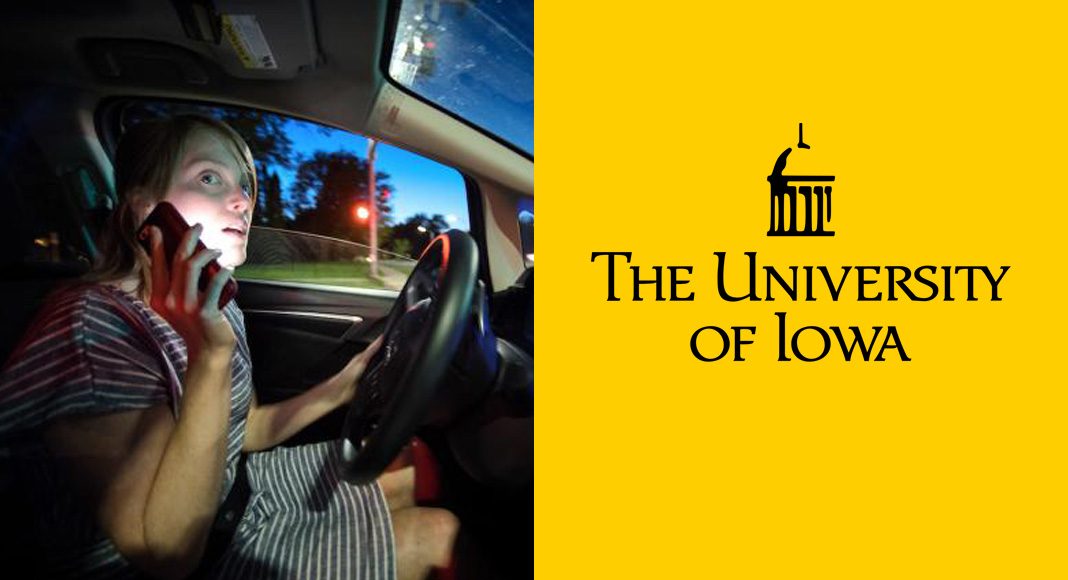New research from the University of Iowa (UI) has explored how even a simple conversation can affect the brain’s ability to focus on the road.
UI researchers conducted computerized experiments that tracked eye movements while asking subjects to answer true or false questions. Respondents who answered the questions took about twice as long to direct their eyes to a new object on the screen than those not required to respond or who were asked no questions at all.
The experiments were intended to mimic a scenario in which a driver is using a cell phone or having a conversation with a passenger.
“What this study suggests is the reason you should be cautious (when talking on the phone while driving) is it slows your attention down, and we’re just not aware of it because it happens so fast,” said Shaun Vecera, professor in the UI Department of Psychological and Brain Sciences and corresponding author on the paper, published online June 5 in the journal Psychonomic Bulletin and Review.
The delay is about 40 milliseconds, or four-hundredths of a second, which may not seem like a long time. However, the researchers found that every time the brain is distracted, the time to disengage from one action and initiate another action gets longer.
“It’s a snowball effect,” Vecera said, “and that’s what contributes to the problem, because eventually you’re oblivious to a lot that’s around you.”
Vecera explained that although engaging in conversation, whether on the phone or with someone in the vehicle, ‘seems effortless’, it’s far more complex than that. The brain is absorbing information, overlaying what you know (and what you don’t), and then preparing to construct a thoughtful reply.
Read more about this study at the University of Iowa website.



















